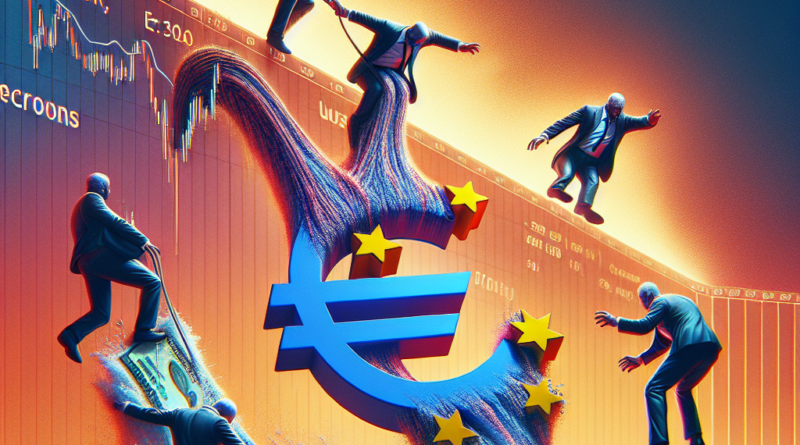Europe lags behind in recovery, boosting bonds. Euro drops
The Eurozone Private Sector Faces Economic Challenges
The Eurozone’s private sector economic activity unexpectedly lost momentum, with the region’s manufacturing sector experiencing its worst month of the year.
Disappointing PMI Results and Market Reactions
Preliminary PMI results in the area have fallen short of all expectations, indicating that the European economy is still in the early stages of recovery from last year’s mild recession.
Following the surprising announcement of early elections by President Emmanuel Macron, the anticipation of a radical change in the government of the region’s second-largest economy has grown.
Market reactions to the weak PMI, including the services sector, were immediate with bond yields increasing as declining economic activity led traders to bet on monetary easing.
Impact on Bond Yields
German ten-year bond yields fell by six basis points, dragging down US Treasury rates, after disappointing PMI readings for the two major European economies.
The overall Eurozone index also dropped more than expected in June, leading traders to anticipate a second ECB rate cut by October and an 80% chance of a third one this year.
The Uncertainty in Europe Affects Bond Yields
Even Gilts experienced a jump due to slower-than-expected private sector growth in the UK, with expectations of two rate cuts in 2024.
The euro declined against the dollar amidst political turmoil, with PMI readings potentially reflecting the impact on the real economy.
France Leading the Economic Decline
French PMI results have raised uncertainty about future economic policies, causing companies to slow down investments and orders.
The weaker economic performance in France has significantly contributed to the deterioration of economic conditions in the Eurozone, with GDP expected to increase by 0.2% in the second quarter.
Manufacturing Challenges and Service Sector Resilience
The manufacturing sector remains a key challenge, with signs of factory struggles rather than recovery.
Although service sector activity didn’t meet analysts’ expectations, the overall expansion remained solid, partly due to reduced financing costs.
Efforts to Boost Consumer Contribution
The ECB has started cutting interest rates and is expected to make further reductions if inflation moderates towards target levels.
With hopes that lower interest rates will increase consumer spending, concerns about the risks of disinflation persist in the Eurozone.




